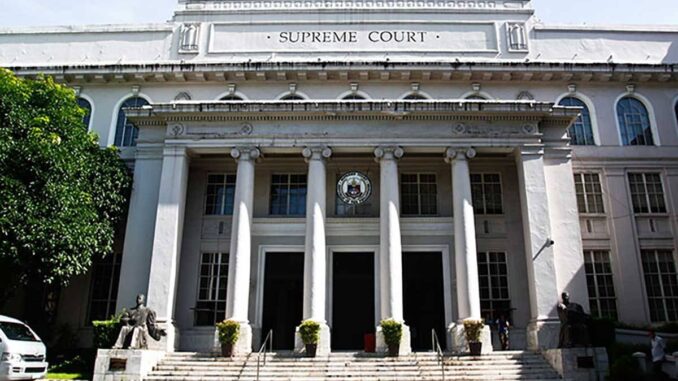
IN a significant ruling that reinforces protections for victims of child sexual abuse, the Supreme Court declared that evidence relating to a victim’s sexual predisposition or past sexual behavior is inadmissible in criminal proceedings of this nature.
This decision that the high court issued is part of its judgment regarding the case against Adrian Adrales, who was found guilty of qualified trafficking in persons under the Anti-Trafficking in Persons Act of 2003.
The case stemmed from incidents in July 2011, when Adrales reportedly approached a 14-year-old girl after a party and facilitated her sexual encounters with various men, receiving payment for these acts.
Specifically, Adrales arranged for the victim to engage in sexual intercourse with an individual known as Emong and subsequently paid her P800.
This process repeated itself on two additional occasions, with Adrales remaining present outside the encounters.
Following his conviction by the Regional Trial Court, which was upheld by the Court of Appeals, Adrales attempted to defend himself by arguing that the victim was already known in their community as a prostitute.
However, the Supreme Court affirmed the lower court’s ruling, noting that the elements of qualified trafficking were clearly established.
The Court highlighted that trafficking involves recruitment, transport, or transfer of individuals for exploitative purposes such as prostitution, regardless of consent, particularly when minors are involved — a factor that elevates the severity of the offense.
The Court firmly rejected Adrales’ defense, emphasizing the protection afforded to child victims by the sexual abuse shield rule, articulated in Section 30(a) of the Rule on Examination of a Child Witness.
This rule explicitly prohibits the use of evidence related to a victim’s past sexual behavior in child abuse cases, aiming to protect victims from further trauma and stigmatization.
Ultimately, Adrales was sentenced to life imprisonment, fined P6 million, and ordered to pay the victim P1.8 million in damages.
This landmark decision is expected to have a profound impact on future cases of child sexual abuse and trafficking, reinforcing the principle that a child’s worth and testimony should not be undermined by their past experiences.





Be the first to comment